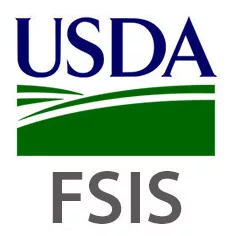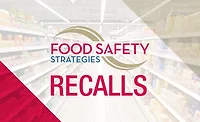FSIS Highlights Accomplishments in Protecting Public Health

Over the past year, the Food Safety and Inspection Service (FSIS) at the U.S. Department of Agriculture (USDA) has moved forward in its goal of modernizing the agency from top to bottom while fulfilling its mission to prevent foodborne illness and protect public health.
“It’s all about the science,” said Dr. Mindy Brashears, Deputy Under Secretary for Food Safety. “Science and data inform every decision we make.”
In fiscal year (FY) 2019, FSIS inspected more than 164 million head of livestock and 9.83 billion poultry carcasses. FSIS inspection program personnel also conducted 7.1 million food safety and food defense procedures across 6,500 regulated establishments to ensure meat, poultry, and processed egg products are safe and wholesome.
Modernization
In FY 2019, FSIS continued its initiative to modernize operations and inspection systems.
- FSIS finalized a rule that modernizes swine slaughter inspection to foster innovation in the industry and increase FSIS offline inspection tasks that have a direct impact on public health while maintaining 100 percent carcass-by-carcass inspection. The rule is comprised of two parts – mandatory microbial testing requirements at all swine establishments and the New Swine Slaughter Inspection System, which establishments can choose to operate under or, they can remain under the traditional slaughter inspection system.
- FSIS issued a proposed rule to revise the pathogen reduction performance standards for Campylobacterin not-ready-to-eat (NRTE) comminuted chicken and turkey products based on a microbiological method change from direct-plating to enrichment because the enrichment method more effectively recovers the pathogen.
- FSIS implemented several changes to enhance the surveillance of the National Residue Program, including modernization of the FSIS residue annual sampling plan, updated residue methodology, and redefining the sampling of lamb and mature sheep.
- FSIS began the surveillance of liquid and dry egg products for pesticide residues.
Targeting Foodborne Illness
FSIS continued to focus on its mission of protecting public health and preventing foodborne illness. Agency efforts focused on:
- A revised methodology for assessing whether establishments meet applicable Salmonella performance against the current performance standards for poultry products.
- The implementation of a new Salmonella categorization methodology in response to public comments.
- Calculating and publishing new estimates of the prevalence of Salmonella in pork products.
- New collaborative work with USDA’s Agricultural Research Service to determine the presence of non-O157 Shiga Toxin producing Escherichia coli in pork products.
- The development of a new sampling plan for raw pork products that will be implemented in FY 2020.
- Publishing new performance standards for Campylobacter in not-ready-to-eat comminuted chicken and turkey.
Collaboration
Much of the agency’s work is conducted in cooperation with federal, state and municipal agencies and other stakeholders. FSIS collaborated with Centers for Disease Control and Prevention (CDC) and the Food and Drug Administration (FDA) to meet the agency’s goal to improve coordination of federal food safety efforts and address cross-cutting priorities for food safety data.
- To ensure the safety of food produced using cell-culture technology, FSIS and FDA established a joint regulatory framework for foods derived from the cells of livestock and poultry.
- In coordination with the CDC, FSIS began using whole genome sequencing (WGS) as the primary characterization tool for Salmonella, Campylobacter, and E. coli in meat and poultry.
- FSIS proposed and finalized a number of deregulatory actions in 2019, including eliminating redundant regulations and taking a more science-based approach to regulatory controls.
Foreign Country Equivalence Oversight and Import Reinspection Programs
FSIS re-inspects all commercial products imported to the U.S. from eligible foreign countries at official import inspection establishments.
FSIS re-inspected 4 billion pounds of meat and poultry and 7.5 million pounds of processed eggs in FY 2019. Of this, 5 million pounds of meat and poultry and 5,000 pounds of processed eggs were refused entry.
FSIS received requests from six countries for six initial equivalence determinations and one reinstatement.
Next Steps for FY 2020
In FY 2020, FSIS aims to finalize rules proposed in 2019, including the Egg Products Inspection Regulations rule.
FSIS developed a plan in 2019 to expand testing for non-O157 Shiga-toxin producing E. coli (STEC) to all FSIS regulated beef products. FSIS will propose this expanded testing and request comments on the plans before finalizing them during FY 2020.
FSIS will also continue to focus on food safety modernization, including:
- Exploring improvements to beef slaughter inspection;
- Expanding the chemical residue surveillance program;
- Revising performance standards for Campylobacter in comminuted chicken and turkey products based on a method change; and
- Proposing performance standards for Salmonella in raw pork cuts and raw comminuted pork products.
FSIS currently employs approximately 9,000 employees, of which around 8,000 work in federally regulated establishments, laboratories, import establishments or in-commerce facilities.
Looking for quick answers on food safety topics?
Try Ask FSM, our new smart AI search tool.
Ask FSM →








